Cate Blanchett was honored with the 2024 Donostia Award from San Sebastián International Film Festival, the festival’s highest honor was presented to her by Alfonso Cuarón who directed her in the upcoming TV series, DISCLAIMER*. The presentation of the award was followed by the screening of her new film, RUMOURS. Earlier in the day, a press conference was held where she talked about her works and career.
Google translated from Spanish to English
VANITY FAIR: What did you think of San Sebastian? Have you been able to enjoy the city?
Cate Blanchett: I think it’s fabulous, there’s so much going on at once. It’s great what happens in these small and medium-sized cities when they host cinema, like the Lido in Venice. I love all those smaller venues where the festival just completely takes over the environment.VF: Tell me about the ceremony. What did you feel last night?
CB: It was a big surprise. I was very touched that Alfonso was there, with whom I have come a long way [he is referring to the series Disclaimer*, which he directs and which will soon be released on the Apple TV+]. The appearance of George, who was not wearing pants [in the video the actor appeared in a shot from the waist up, so there was a joke about it] also moved me a lot.VF: It’s been 26 years since the release of Elizabeth (Shekhar Kapur, 1998), the film that made you famous worldwide. How do you remember the young actress you were?
CB: I hope I’ve evolved since that revelation you mention. At that time I realised that there was so much to do… I knew the pedigree of the actors who had played that role before: Flora Robson, Judi Dench, Bette Davis, Glenda Jackson, so I said to my director “Well, who am I to think I can fit into those shoes?” And Shekhar said, “You’re from the colonies, so we’ll be able to explore the process in a very different way, in reverse.” And that took a lot of pressure off of me. I was very inexperienced and terrified, but I didn’t have time to be scared because I had to command this ship. I think I work best when the challenge is really big. That experience taught me a lot. Also, when I was in my first job after drama school, one of the great actresses on the Australian stage saw me worried in the dressing room and said, “You know, being a lead actress isn’t just about having more lines. You have to help direct the mood.” That made me realize that you have a duty of care to the other cast members, the crew and the whole production as a whole. Those two moments made me think about my job not just for my part, but it made me care about the crew and the evolution of the whole piece.VF: Two years ago, you were our September cover with an interview that was the prelude to Tár, the film that would end up winning the Volpi Cup at the Venice Film Festival. We gave each other luck!
C. B: Oh, that’s right, they were some very funny photos!VF: You have lived through not only San Sebastian now, but many festivals (President of the Jury at Venice 2020 and Cannes 2018). How have you experienced it on both sides of the barrier?
C. B: From my experience of the times I have been President, I find that it is much easier to applaud the work of others than to receive applause, which is difficult for me. There is a very important Australian theatre director called Barrie Kosky who always told me: “You have to stand there,” because I always wanted to bow down and run off the stage. But he insisted: “You have to stand there because the audience at the end of a play needs release.” According to him, the audience never really get to see the person on the screen, so theatre and the physical presence at festivals is the only connection you have to really reach the people who follow you in the cinema. That said, receiving gratitude and applause is very overwhelming. Last night was very overwhelming…VF: If I’m not mistaken, this is the first time you’ve visited San Sebastian.
C. B: Yes. Yes, it’s true, can you believe it? But it won’t be the last.VF: Have you had time to try the food?
C. B: Yes, we were able to go out to dinner last night, to a wonderful place. What was the name of the amazing restaurant we went to? [She asks her manager, who is in the next room, raising her voice a little.] That’s it! —she reacts, upon receiving the answer—: Akelarre. How good it was! And the city is beautiful, with this beach… I mean, I’m Australian, so I’m used to beaches, but I love the water so much… It’s a very different experience to be next to the ocean or next to a river. The ocean is something of an existential space, whereas a river is a much more poetic internal space. But I love the water, so I have to go back.VF: You pivot easily between mainstream cinema — Lord of the Rings , Marvel, or the naughty Borderlands , released last month — and prestigious festival films. Do you feel that your personality is more with drama or with lighter, more casual characters?
C. B: I don’t know… I think I love the counterpoint. I like talking to different audiences. I remember that when I made Indiana Jones [and the Kingdom of the Crystal Skull, 2008], I had just come from something completely different. No matter the size or ambition of the film, you never know if it’s going to work or if it’s going to reach its audience, so it’s always a gamble. Sometimes they don’t work, sometimes they don’t connect with a certain audience, and they even connect with people after 10 years. And many of them reach platforms that I don’t even know how to look for. But what I do want to make clear is that I love working. I always think of the job as creating a little circus family, and I love that shared feeling with the crew and the cast. Maybe it’s because I’ve worked for years and years in the theater. And that gets complicated in films that are very big because there are so many different stages that it’s harder to create that sense of togetherness. I like doing things with other people. I can be a bit of a loner in my private life — I live in the country, you know — so I think the job keeps me social.VF: Do you follow any strategy or calculation when it comes to going out to shoot and staying at home or does it depend on the projects?
C. B: It’s so random… After my last shoots I thought I needed to take a sabbatical year, but suddenly Guy Maddin’s film [Rumours, screened this Saturday in San Sebastián] came up right at the end of 2023, but it’s true that I had taken the rest of the year off from shooting. It’s difficult for me to know which projects to choose, but the flow of the festivals is very important because they bring us closer to people and they are keeping the pulse of cinema, so I ended up working with Jim Jarmusch at the beginning of the year and then I worked with Soderbergh again. I also have an upcoming series, Disclaimer*, with Cuaron.VF: He was the only one of the three fantastic Mexicans that you have yet to work with (Alfonso Cuarón, Alejandro González Iñárritu and Guillermo del Toro). Not many people have worked with all three of them. Do you feel like a muse for all three?
C. B: It’s strange, isn’t it? They’re so talented, so, so talented, but so different and so interconnected. They’re always showing each other their work and I think it’s because they’re not competing with each other, but rather complementing each other. They’re very generous and honest and always constructively criticizing each other’s work. I think it’s incredibly valuable that they have that really close creative connection.VF: We feel that Del Toro is very much our own because he has worked here. Do you feel connected to any director or actor of Spanish cinema? Do you have a good relationship with them?
C. B: Of course. Spanish cinema is so influential. I feel a very special pleasure to be at the festival with Javier [Bardem], whom I deeply admire as an actor. I don’t think there’s anything he can’t do, so he deserves the award very much. Just like Pedro [Almodóvar] [with whom she was about to work three years ago on the adaptation of Lucia Berlin’s Manual for Cleaning Women, which ultimately did not go ahead]. I feel really special to receive the Donostia just like them, because I admire them both so deeply.VF: When the festival announced its Donostia on social media, it highlighted you as one of the best actresses of her generation. How do you feel when you hear something like that?
C. B: It’s overwhelming, actually. I don’t know what to say. There are so many actors and actresses that I admire and I would say the same thing about. That’s why it’s been so great to chair Venice and Cannes and then go to Cameraimage, because it’s the opportunity you have to recharge your batteries, absorb other people’s work and talk about it with people like Dennis Villeneuve, Ava DuVernay, Joanna Hogg… People who tell you what they like and what they don’t like, who share their lists of favorite films in a way that doesn’t happen when you’re just going to present a film or receive an award, which is a great honor, but you feel strangely unworthy. So when you come here, especially as a mother of four, you have to come in and out without giving yourself time to see other films. Because as a spectator, sometimes you see a film that changes your life.VF: Any films that changed your life at a festival that you can share with us?
C. B: I remember staying an extra day in Cannes to see Scorsese’s The Killers of the Flower Moon. It was a very, very powerful evening and I really think it’s a very important film and I think people needed to see it on the big screen. There were people who complained that it was too long, but I always thought, “I’ll bet you didn’t see it in the theater.” When you see them properly and you really give yourself over to the experience like you do at festivals, it’s a different experience and that’s why they’re so important. When you watch films at home it’s a lot easier to get up and make yourself a cup of coffee or check your messages or go to the bathroom. I was talking to [director] Ang Lee last week and I was telling him that I’d seen The Ice Storm at Cannes [in 1997] and that it’s become one of my favorites ever since. It’s a perfect film. In fact, a lot of his films are perfect, and I think that was the first time I was able to sneak away to see a film at a festival while promoting. I was presenting a small Australian film in the market without competition, borrowed a dress from an actress friend because I didn’t have one, got a ticket and was totally overwhelmed. That was my first experience of a festival.VF: Continuing with Scorsese, your role in The Aviator earned you your first Oscar. Have you maintained a relationship with him since then?
C. B: Oh, yes, yes, yes. And every time I see him, I say, ‘When are you going to make a movie with a woman at the center of the plot?’ Although he kind of did that in the last one, giving that prominence to Lily Gladstone. She may not have had as much screen time as some of the other characters, but she was just as present as they were. When you get into the orbit of someone who is so great and so generous with their knowledge of cinema, you don’t want to leave. It’s a real privilege.VF: Speaking of another master, when Giorgio Armani launched the fragrance Sì in 2011 – of which Blanchett is the face – he defined it as his homage to the modern and the contemporary, charged with strength and independence, so he attributed those attributes directly to you. So, how do you feel about representing all those attributes for him?
C. B: He has had a profound influence on my aesthetic sense, on my work ethic, on my reading list or on my sense of colour. He also refers with his definition, I think, to his mix of masculine and feminine silhouettes and to always taking off a garment to find that elegant simplicity. If you look at his latest collection for Armani, there is always a kind of carefreeness in the proposal that I really love. He is a master, and even at his age, he is aware of every detail… and he is very stubborn when he is passionate about something. So, some of our discussions are quite deep and I really enjoy them. He’s someone who doesn’t hold back his opinion, and I see a strength in that. I don’t take the privilege of treating him so lightly, and so I try to live up to it.VF: Finally, I cannot say goodbye without asking you about that ring that you keep putting on and taking off. I don’t know if it contains a story and if you would like to share it.
C. B: Yesssss. I bought it in Berlin. In fact, I bought it for my husband.VF: Does it represent something specific to you? [It is the effigy of a wolf] C. B: I think we have to find a meaning to it, yes… You know? I think there are so many bad wolves in the world, and I think women have to reclaim their good place and become wolf mothers. I would like to tell you that it is that, but no, it is not like that. I put it on today because I stole it from my husband [laughs].
Full interview on Vanity Fair Spain
Cate Blanchett ya está en San Sebastián para el Festival de cine#72SSIFF #DCorazón pic.twitter.com/AA4m6zLXDG
— La 1 (@La1_tve) September 21, 2024
¡Y desde la alfombra roja del @sansebastianfes, Cristina Teva nos informa de la última hora, con el paso de Cate Blanchett, Premio Donostia 2024! #72SSIFF pic.twitter.com/NU6gFkFIvK
— Movistar Plus+ (@MovistarPlus) September 21, 2024
Cate Blanchett #72SSIFF pic.twitter.com/LKYKWZ4O3s
— AitorK (@Ak47tv) September 21, 2024
Cate Blanchett arrives at the #SanSebastianFilmFestival to pick up her Donostia Award pic.twitter.com/8XP7qMJYC7
— The Hollywood Reporter (@THR) September 21, 2024
Cate Blanchett is in da house. @sansebastianfes-eko bigarren eguna (2024/09/21). pic.twitter.com/HpA1gy4hC6
— Juan G. Andrés (@foteropanico) September 21, 2024

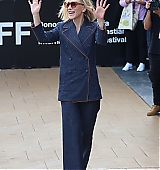
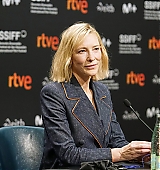
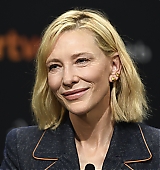


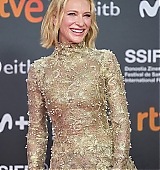
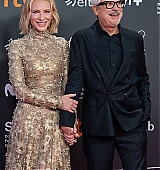
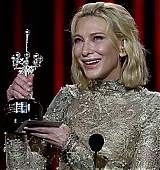
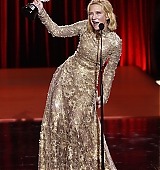
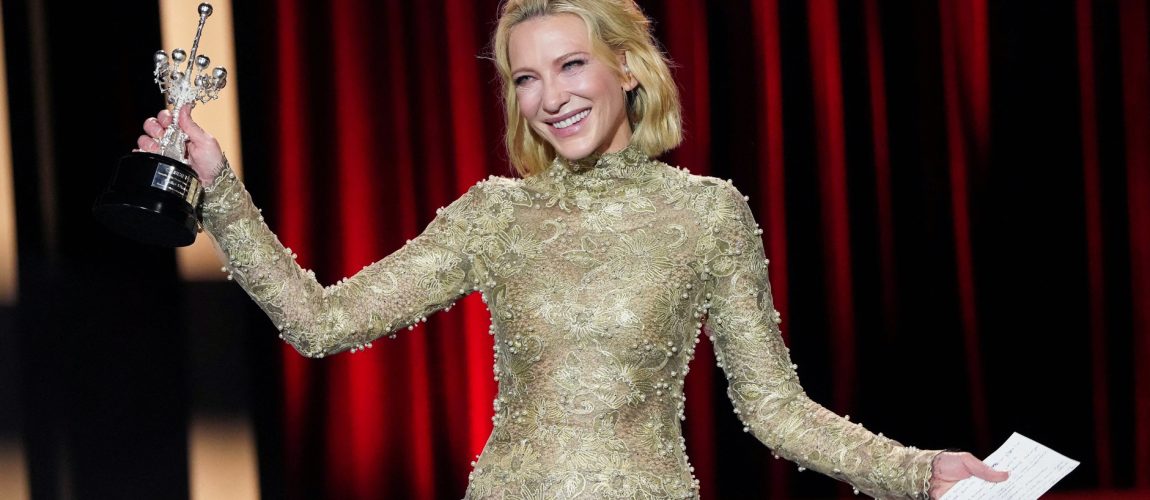
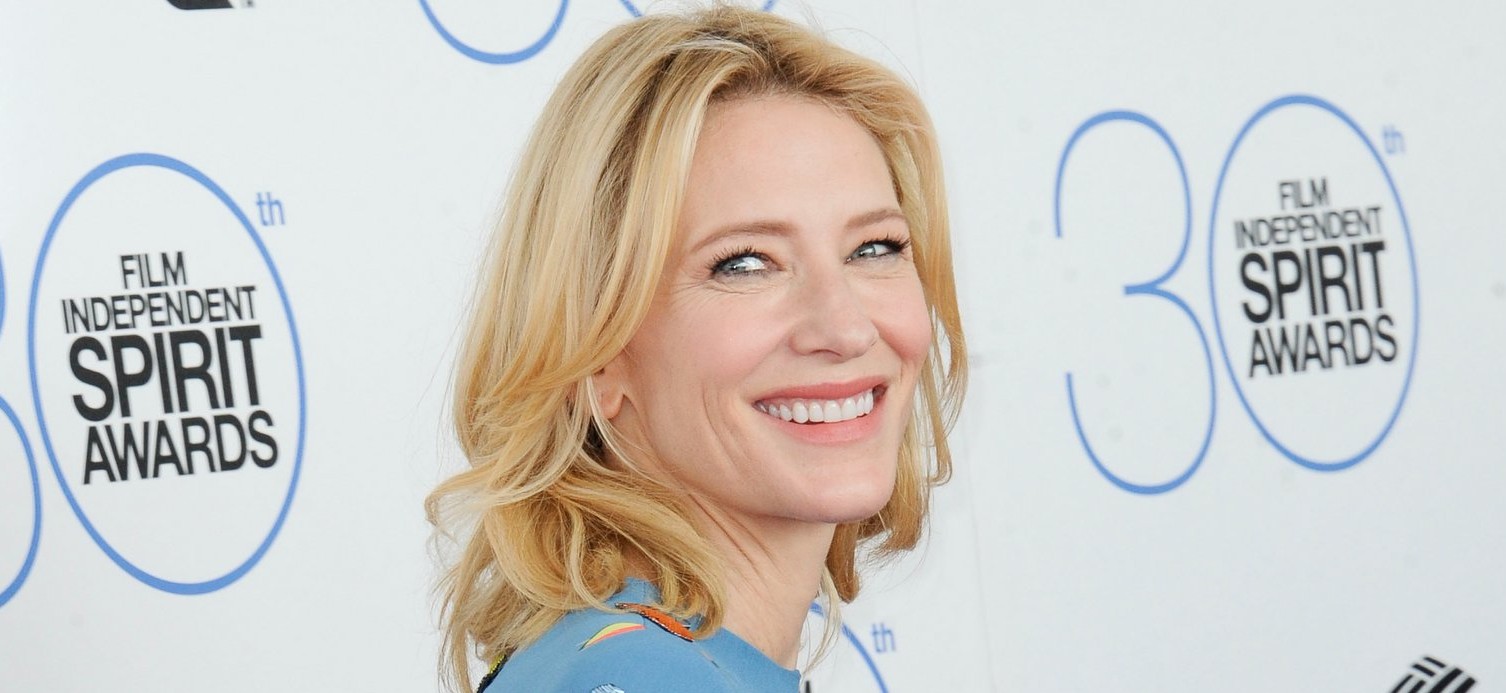
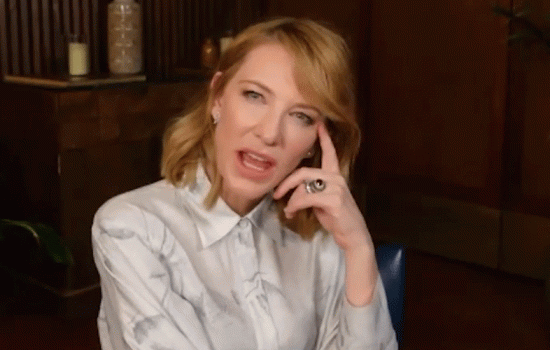

 A Manual for Cleaning Women (202?)
A Manual for Cleaning Women (202?) Father Mother Brother Sister (2025)
Father Mother Brother Sister (2025)  Black Bag (2025)
Black Bag (2025)  The Seagull (2025)
The Seagull (2025) Bozo Over Roses (2025)
Bozo Over Roses (2025) Disclaimer (2024)
Disclaimer (2024)  Rumours (2024)
Rumours (2024)  Borderlands (2024)
Borderlands (2024)  The New Boy (2023)
The New Boy (2023) 











